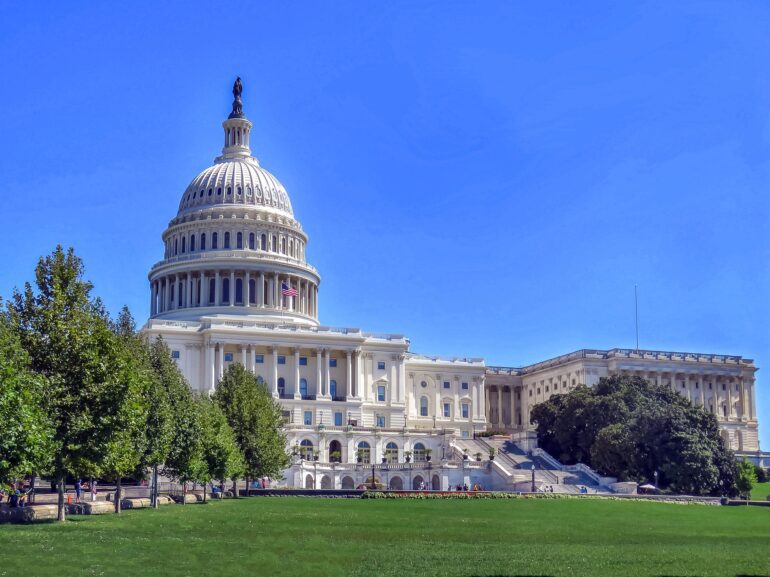TL;DR:
- OpenAI CEO Sam Altman’s testimony in Congress sparks a senator’s bill to create a federal agency for AI regulation.
- Colorado Democratic Sen. Michael Bennet introduces an updated version of his legislation, proposing a Federal Digital Platform Commission.
- The bill explicitly covers AI products and expands the definition of a digital platform to include algorithmically generated content.
- Bennet argues that major tech companies should not face less regulation than small businesses and highlights the need for oversight to protect democracy and children’s mental health.
- The bill gives the commission jurisdiction over personal data usage for content generation and decision-making.
- “Systemically important” platforms would require algorithmic audits and public risk assessments.
- The commission retains oversight authority over social media, search engines, and online platforms.
- Congress is rapidly addressing AI regulation following Altman’s testimony, with a potential focus on creating a specialized federal agency.
- Altman suggests licensing or credentialing for AI companies but declines the idea of serving as agency chair.
- The bill does not include an explicit licensing program but grants the commission the authority to design appropriate rules.
- Some lawmakers support a specialized regulator for internet companies, while others caution against creating a new bureaucracy.
- Critics warn of “regulatory capture” and emphasize the need for adequate support and expertise for effective regulation.
Main AI News:
Days following OpenAI CEO Sam Altman’s testimony before Congress, proposing the establishment of a new federal agency to regulate artificial intelligence, a bill has been introduced by a US senator to address this very issue. Colorado Democratic Sen. Michael Bennet recently unveiled an updated version of his previously introduced legislation, which aims to create a Federal Digital Platform Commission.
The revised bill, reviewed by CNN, incorporates several changes that explicitly encompass AI products. One significant amendment is the inclusion of companies that provide “content primarily generated by algorithmic processes” within the definition of a digital platform.
Sen. Bennet emphasized the need for equal regulation between major tech corporations and small businesses in Colorado, particularly considering the negative impacts technology has had on democracy and the mental health of children. He believes that Congress cannot keep pace with the rapid advancements in technology and calls for the establishment of an expert federal agency to safeguard the American people’s interests and ensure the responsible operation of AI tools and digital platforms.
The updated bill further expands on the definition of algorithmic processes, specifically addressing the commission’s jurisdiction over the use of personal data to generate content or make decisions. These aspects are central to generative AI technologies like OpenAI’s popular chatbot, ChatGPT. Additionally, for companies deemed “systemically important,” the bill mandates algorithmic audits and public risk assessments to mitigate potential harm caused by their tools.
While the bill retains the existing requirement for fair, transparent, and safe platform algorithms, it grants the commission broad oversight powers over social media platforms, search engines, and other online platforms. This increased emphasis on AI highlights Congress’s swift adaptation to policymaking regarding this cutting-edge technology, which it is actively striving to comprehend. Following Sam Altman’s recent testimony, the debate around establishing a dedicated federal agency to regulate AI tools is expected to gain prominence.
During a Senate hearing, Altman proposed that such an agency could control AI development through licensing or credentialing for AI companies. Some lawmakers displayed openness to the idea, with Sen. John Kennedy of Louisiana even inquiring whether Altman would consider serving as its chair. Altman, however, humorously declined the offer, expressing his contentment with his current role.
The bill unveiled on Thursday does not explicitly outline a licensing program, but it tasks the commission with designing appropriate rules to oversee the industry. Bennet’s office did not consult with OpenAI when crafting either the original or revised bill.
While some lawmakers support the notion of a specialized regulator for internet companies, potentially conflicting with existing agencies such as the Justice Department and the Federal Trade Commission, others caution against the potential risks associated with creating a new bureaucracy.
Gary Marcus, a professor at New York University critical of AI hype, warned against regulatory capture, whereby industries exert excessive influence over government agencies established to hold them accountable.
Sen. Richard Blumenthal of Connecticut, a former state attorney general experienced in prosecuting consumer protection cases, emphasized that agencies require adequate support to be effective, not just in terms of financial resources but also scientific expertise. Merely creating new agencies without empowering them may allow industries to outmaneuver regulatory efforts.
Conlcusion:
The introduction of the bill proposing a Federal Digital Platform Commission for AI regulation signifies a significant development in the market. The explicit coverage of AI products and algorithmically generated content indicates a growing recognition of the need for oversight in the digital landscape. This move highlights the increasing focus on AI regulation by lawmakers and the potential for new regulations to impact major tech companies.
As Congress debates the establishment of a specialized federal agency, businesses operating in the market should prepare for potential changes in compliance requirements and heightened scrutiny of their AI tools and digital platforms. It is crucial for market participants to stay informed and adaptable to evolving regulations to ensure continued operation in the public interest and maintain consumer trust.

